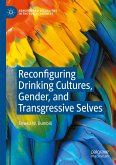This book offers an historical and contemporary analysis of policing and police-citizen relations in Nigeria, to understand why people co-operate (or don't) with the police. It examines police legitimacy and the validity of procedural justice theory in a post-colonial African context where corruption, brutality and lack of accountability are not uncommon, to find more refined and alternative answers to the question of why people co-operate (or don't) with the police. The history of policing in Nigeria is explored first and then procedural justice theory is tested through an extensive, cross-sectional survey of the public. One of the core findings is that citizens' co-operation with the police is driven less by legitimacy but more by effectiveness considerations and "dull compulsion", a concept akin to legal cynicism. This study represents one of the first attempts to test and understand "dull compulsion" and its relevance in this context. Overall, it develops the field by illustratingthat that there are significant variations between contexts when addressing the influence of perceived procedural justice policing on perceptions of police legitimacy, and it explains the implications for policy makers.
Dieser Download kann aus rechtlichen Gründen nur mit Rechnungsadresse in A, B, BG, CY, CZ, D, DK, EW, E, FIN, F, GR, HR, H, IRL, I, LT, L, LR, M, NL, PL, P, R, S, SLO, SK ausgeliefert werden.









